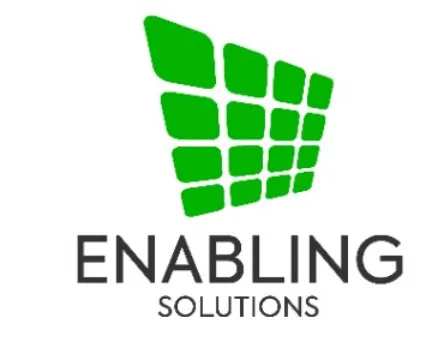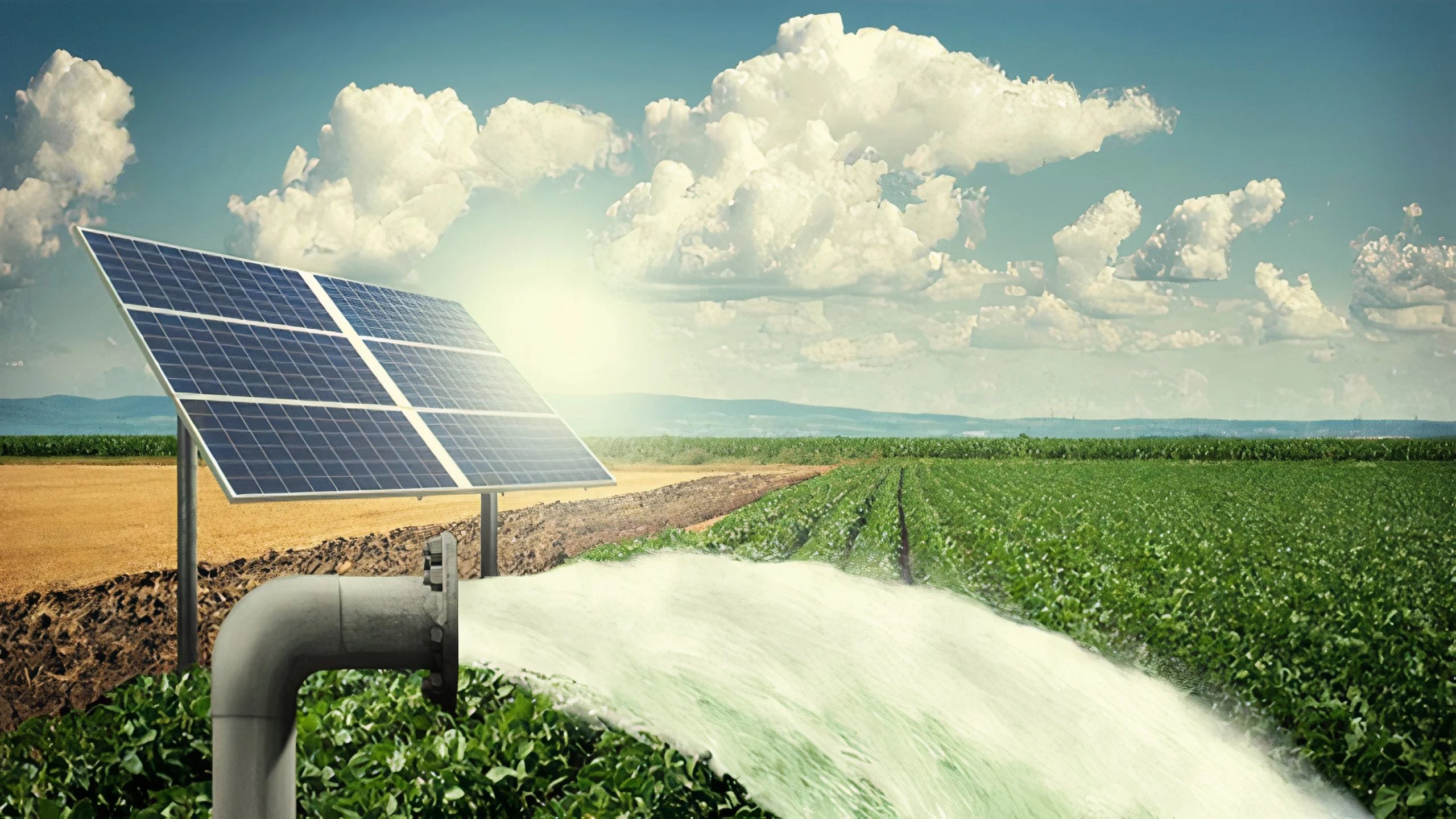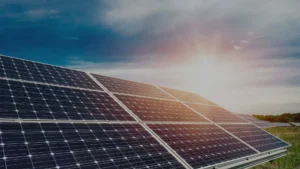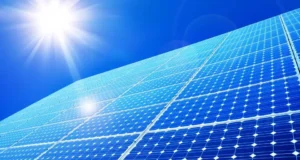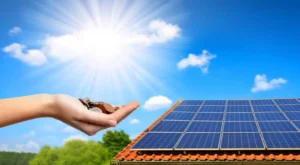As a farmer, you’ve likely wondered how new technologies might impact your livelihood and land in the coming decades. One emerging trend that promises to transform agriculture, as we know that solar farming is future of agriculture, the practice of using agricultural land for solar photovoltaic power stations. While the idea of devoting fertile land to solar panels may seem counterintuitive, solar farming offers substantial benefits that make it the future of farming.
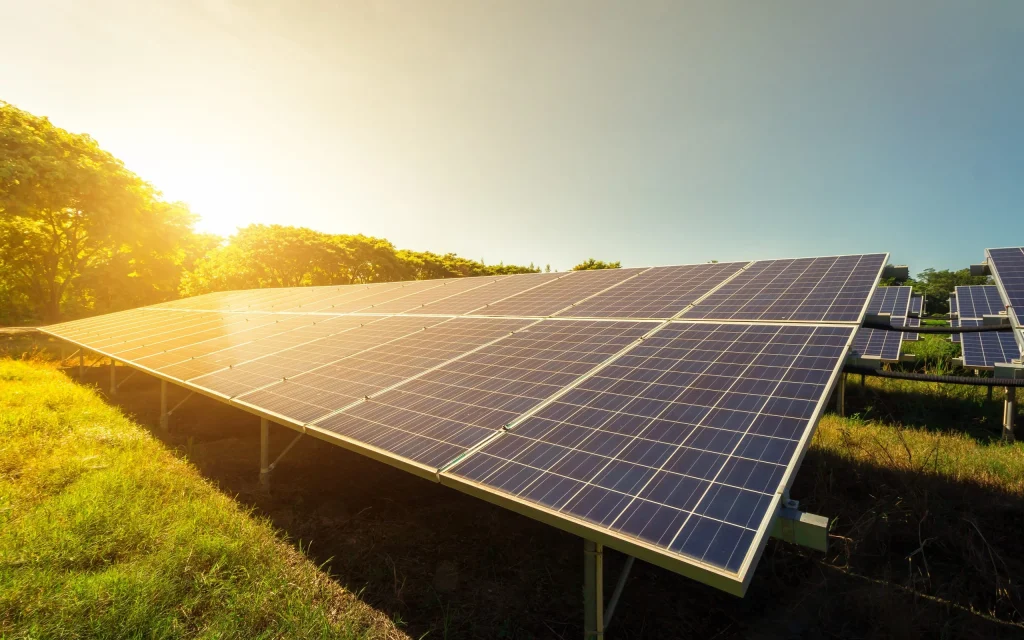
Solar Farming Provides Reliable Irrigation without Rainfall Dependency
For agricultural communities, solar farming is future of agriculture and access to a sustainable water source is essential. Traditionally, smallholder farmers have relied on inconsistent rainfall to irrigate their crops, jeopardizing productivity and crop yields. However, solar-powered irrigation systems offer a viable solution to mitigate the challenges of water scarcity. By harnessing the sun’s energy, solar panels can generate electricity to power water pumps that extract groundwater or surface water and distribute it efficiently for irrigation. This enables farmers to gain independence from erratic weather patterns and uncertain rainfall, providing a reliable source of water on demand. With solar-powered irrigation, farmers have greater control and flexibility over water access, allowing them to irrigate crops as needed to maximize growth and optimize harvests. The initial investment in solar equipment may seem costly, but it offers significant long-term cost savings. After the initial capital outlay, solar energy is free and unlimited. By reducing or eliminating fuel expenses, solar irrigation systems can save farmers thousands of dollars per year in operational costs. The use of energy-efficient pumps and improved water distribution also minimize wasted resources. In addition to economic benefits, solar-powered irrigation contributes to environmental sustainability. It produces zero direct emissions, reducing pollution and the carbon footprint of agricultural practices. The transition to solar energy helps promote energy security by decreasing dependence on fossil fuels. It is a renewable and clean source that can meet the increasing demand for irrigation in a sustainable manner.
For farmers facing challenges with water scarcity and seeking cost-efficient solutions, solar irrigation systems present a promising opportunity. They provide a dependable, eco-friendly way to enhance agricultural productivity and support the growth of farming communities because solar farming is future of agriculture. By investing in solar technology, farmers can secure their livelihoods today and safeguard resources for future generations.
Solar Energy Drastically Reduces Costs for Farmers
Solar farming offers agricultural producers substantial cost savings through the adoption of photovoltaic (PV) panels and related technology in this era with where Increase of Electricity Tariffs in Pakistan over the past Four Years. By harnessing the sun’s energy to generate electricity and power equipment, farmers can drastically reduce their energy bills and overhead costs.
To begin with, the knowledge that solar farming is future of agriculture, the initial capital outlay for a PV system pales in comparison to the long-term savings. Although the upfront costs of solar panels and installation may seem prohibitive, government incentives like tax credits help offset much of the expense. According to research studies, solar energy lowers costs by up to 60% compared to traditional grid electricity. In addition, solar power protects farmers from the volatility of energy prices. As the cost of fossil fuels continues to fluctuate, solar panels provide a consistent and reliable energy source immune to market changes. Solar farming stabilizes energy costs, allowing farmers to budget more effectively and channel funds into enhancing productivity. Furthermore, minimal maintenance and repairs are required to operate a PV system. Solar farming is future of agriculture. Therefore, solar panels have a life expectancy of at least 25 years and come with warranties of up to 30 years. After the initial installation, solar energy is a hassle-free solution for farmers seeking to reduce the time and money spent on upkeep. The system operates automatically by converting sunlight into electricity with no emissions, noise, or pollution. In summary, by transitioning to solar farming, agricultural producers can gain independence from the utility grid, stabilize energy costs, minimize expenses, and operate more sustainably. The benefits of this renewable energy source are substantial for farmers aiming to cut costs, maximize profits, and safeguard the environment. Overall, solar power paves the way for affordable, self-sufficient, and eco-friendly solar farming is future of agriculture.
Solar Farming Is a Sustainable and Eco-Friendly Energy Source
Solar farming utilizes solar energy as an alternative energy source to power agricultural operations in a sustainable manner. Unlike fossil fuels, solar energy is a renewable resource that is freely available and abundant. By harnessing the sun’s radiation, solar panels generate electricity without emitting greenhouse gasses or other pollutants. Implementing solar technology in farming leads to a greener future for agriculture. It helps mitigate the environmental impact of farming activities and reduces pollution from the use of diesel generators. Since solar panels do not require fuel to operate, they produce zero emissions and minimal noise. This results in a habitable environment and workforce.
The sustainable nature of solar energy ensures long-term cost savings for farmers which is why solar farming is future of agriculture. Although the initial capital investment in solar panels and batteries may seem substantial, solar systems can fulfill a major portion of a farm’s electricity needs over a lifetime of 20 – 25 years. Farmers gain energy independence and control over costs by reducing dependence on fossil fuels and utility companies. The saved costs on energy bills and fuel can be reallocated to improving productivity and crop yields.
With the threat of climate change looming over the agricultural sector, transitioning to renewable energy sources like solar power is crucial. By decreasing pollution and environmental degradation, solar farming helps create sustainable food systems and protects natural resources for future generations. It offers farmers the means to strengthen agricultural resilience in the face of a changing climate. In summary, solar farming presents an eco-friendly solution that benefits both farmers and the planet. It provides a sustainable energy source, significant cost savings, and environmental advantages that outweigh those of conventional farming methods reliant on fossil fuels. Embracing solar technology is a step towards building sustainable agricultural practices and securing solar farming is future of agriculture. Farmers should consult experts to determine how they can start harnessing the power of the sun.
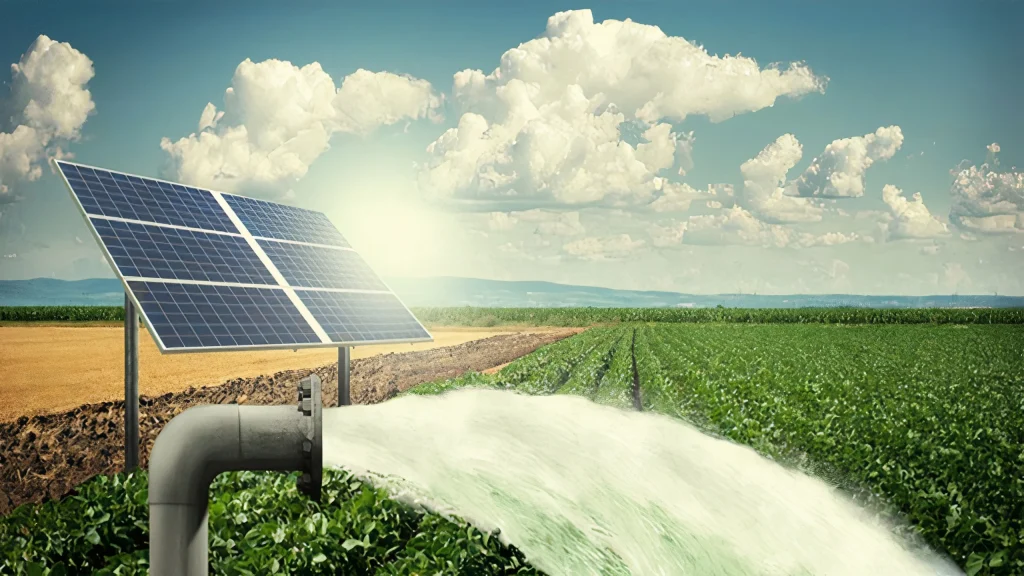
Solar Power Enables Convenient Energy Storage for Future Use
As a farmer you know that solar farming is future of agriculture, storing excess energy generated from your solar panels for later use is crucial to maximizing their potential. Solar power enables convenient energy storage through the use of lithium-ion batteries and other affordable solutions.
Cost-Effective Storage
Compared to traditional energy sources you will get that solar farming is future of agriculture, solar power paired with energy storage is significantly more cost-effective. As energy prices rise, solar energy and storage solutions become increasingly economical while reducing pollution. On average, a solar-plus-storage system can meet over 50% of your farm’s electricity needs, resulting in major savings on your monthly utility bills and fuel costs over the long term.
Reliable Power Source
Whether you anticipate energy shortages or simply want a consistent power supply, as solar farming is future of agriculture energy storage provides farmers with a dependable source of electricity whenever needed. The excess energy harnessed from your solar panels during sunny periods is stored in batteries for later use, giving you power at your fingertips day or night. With an energy storage system, you will have a reliable and sustainable solution to power critical equipment and operations.
Maximized Solar Potential – solar farming is future of Agriculture
By storing the excess energy generated from your solar panels, you can maximize their potential. The solar energy that would otherwise be lost or sold back to the grid at a lower rate can now be used to power your farm when solar panels are not producing electricity. This allows you to make the most of your investment in solar panels and benefit from their generation capacity around the clock.
In summary, with the help of energy storage technology, the solar energy harnessed during peak generation times can be saved for use when the sun is not shining. An energy storage system, paired with your solar panels, provides farmers with an affordable, dependable, and eco-friendly solution to power their agricultural operations because solar farming is future of agriculture. By storing excess solar energy, you can maximize the potential of your solar panels and ensure a consistent supply of electricity whenever needed to keep your farm running efficiently.
Expert Enabling Solutions Guidance Makes Transitioning to Solar Farming Seamless
Solar farming is future of agriculture to transitioning solar farming provides numerous benefits, but the process can seem daunting without proper guidance. Consulting solar energy experts is key to ensuring a seamless transition. These professionals have the knowledge and experience to design solar solutions tailored to your farm’s unique needs.
Tailored Solutions
No two farms are alike, so a one-size-fits-all approach will not suffice. Solar experts will evaluate your farm’s location, size, crop types, and energy usage to determine the ideal solar system and components. They can recommend the appropriate panel types, inverters, and battery storage to maximize efficiency and cost savings. solar farming is future of agriculture with expert input, you can rest assured that your new solar system will be optimized for your farm.
Minimal Disruption
solar farming is future of agriculture for this reason we have experts who oversee the entire installation process, from permits to final inspections, minimizing disruptions to your daily operations. They handle logistics like properly sitting panels to avoid shading and obtaining the necessary permits. The experts will also train you and your staff on properly operating and maintaining the new system. By relying on their experience, the solar transition requires little time and effort on your part.
Ongoing Support
As we have the value that solar farming is future of agriculture even after installation, solar experts remain available to provide support. As technology improves, it helps determine if upgrades would benefit your system. They also monitor system performance to ensure maximum efficiency and quickly troubleshoot any issues that arise. With their ongoing guidance, you can feel confident in your solar investment for years to come.
Peace of Mind
Transitioning to solar power is a big step, and expert guidance provides peace of mind. They have the knowledge and skills to design a high-quality system that meets safety standards and building codes. Their experience also means they can anticipate challenges and find solutions before issues arise. By relying on trusted experts, you can embark on your solar journey with full confidence in a successful outcome because solar farming is future of agriculture.
In summary, Enabling Solutions knows that solar farming is future of agriculture which is why we have a wide range of solar energy experts who are instrumental in ensuring a seamless transition to solar farming. Their tailored solutions, minimal disruption, ongoing support, and ability to provide peace of mind make the switch to solar power straightforward and worry-free. With expert guidance, solar farming can be an easy, affordable choice for agricultural operations looking to the future.
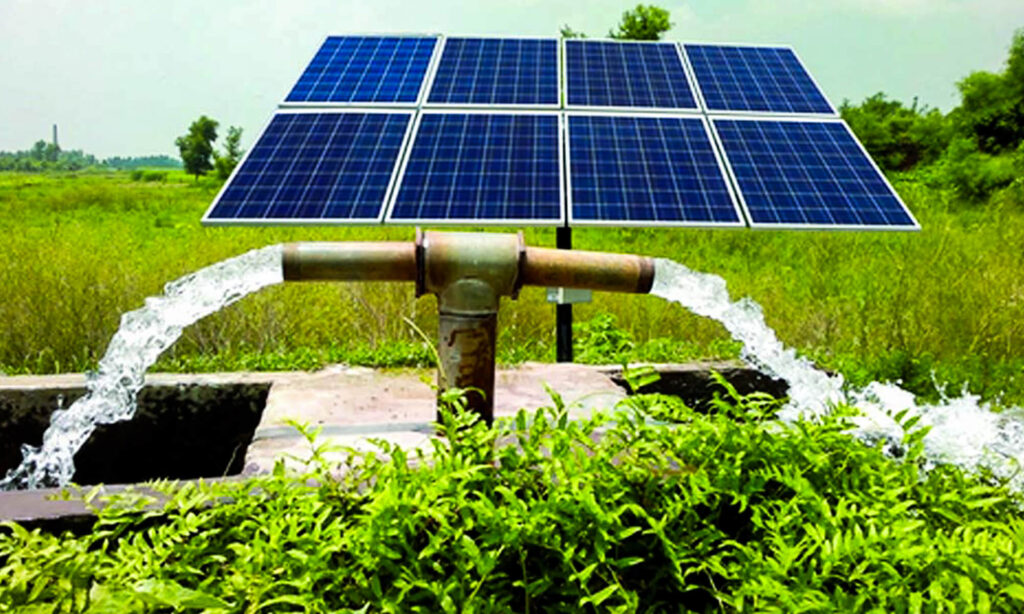
Conclusion
In the face of an uncertain climate future, solar farming represents a sustainable path forward for agriculture. By harnessing the power of the sun, solar farming allows farmers to reduce costs, increase crop yields, and build resilience. Though still an emerging technology, solar farming has significant potential to transform farming as we know it solar farming is future of agriculture. As solar energy becomes more affordable and accessible, solar farming may soon become standard practice. The future of farming is bright and solar-powered. By adopting solar farming techniques, farmers can play an active role in shaping a sustainable food system for generations to come. The possibilities are endless when we unlock the power of the sun. Get in touch with us for an expert Guide!
